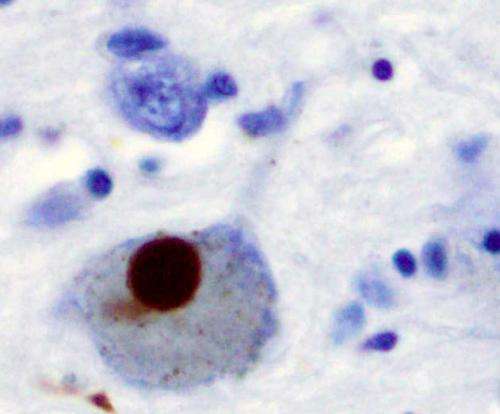
A pioneering clinical trial will investigate the use of cannabidiol (CBD) – a compound found in the cannabis plant—in people with Parkinson’s-related psychosis.
Parkinson’s UK, the largest charitable funder of Parkinson’s research in Europe, is partnering with scientists at King’s College London and investing £1.2 million in the phase II clinical trial.
This is the first large-scale trial which will aim to provide preliminary evidence for the safety and efficacy of CBD to alleviate the symptoms of Parkinson’s-related psychosis, characterised by hallucinations and delusions.
The three-and-a-half-year project is part of the Parkinson’s Virtual Biotech, led by Parkinson’s UK, which is plugging the funding gap in drug development and fast-tracking the projects with the greatest scientific potential, to transform the lives of people with Parkinson’s. Unlike traditional biotech companies, patient priorities and involvement are the primary drivers of the Parkinson’s Virtual Biotech.
There are currently 145,000 people living with Parkinson’s in the UK and between 50 and 60 per cent of them will be affected by psychosis at some point in their life. Hallucinations occur when individuals see, hear or feel things that are not really there. Delusions involve developing fixed beliefs that are not true. These symptoms can be frightening and distressing for people with Parkinson’s and their families and are typically managed with the removal of medication used to treat Parkinson’s. If the symptoms persist, antipsychotic drugs are sometimes used, however this can result in worsened motor symptoms and side effects. In the UK, there are no medications licenced for Parkinson’s-related psychosis.
In a recent survey, people with Parkinson’s told the charity they would continue to use, or start using, cannabis-derived products if robust evidence became available that they are safe and effective in treating Parkinson’s symptoms.
The study, due to start recruitment early next year, will begin with a six-week pilot to assess the safety, tolerability and effectiveness of pharmaceutical-grade CBD in people with Parkinson’s-related psychosis. To find the optimum dose, CBD will be delivered orally in capsules at a dose of up to 1,000 mg/day. In the second stage, 120 people with Parkinson’s-related psychosis will be recruited to take part in a 12-week double-blind, placebo-controlled study.
Scientists will assess the safety and effectiveness of CBD, with half the group receiving the compound and half a placebo. Researchers will then carry out detailed assessments of psychotic, motor and non-motor symptoms. Brain imaging will be used to investigate the effects of CBD.
The announcement comes ahead of final guidance on medicinal cannabis which is due to be published by The National Institute for Health and Care Excellence next month.
Dr. Arthur Roach, Director of Research at Parkinson’s UK, said:
“We know from a recent survey we carried out, that people with Parkinson’s would continue to use, or start using, cannabis-derived products if robust evidence became available that they are safe and effective in treating Parkinson’s symptoms. One of the key questions this clinical trial will address is if CBD is safe to use for Parkinson’s-related psychosis, which has never been done before.
“This trial will provide evidence of the value of CBD to treat the symptoms of hallucinations and delusions in people with Parkinson’s. This could result in a regulated cannabinoid-based medicine being prescribed and used in the clinic, as opposed to self-administration of expensive supplements that have not been monitored for their composition or effects.”
“The projects funded through the Parkinson’s Virtual Biotech are driven completely by the Parkinson’s community. We hope this unique trial will demonstrate the potential of CBD to alleviate some important symptoms and bring us one step closer to delivering a treatment that will improve the quality of life for those affected.”
Lead Researcher, Professor Sagnik Bhattacharya, Professor of Translational Neuroscience and Psychiatry at King’s College London, said:
“Through funding from the Parkinson’s Virtual Biotech this clinical trial will determine, for the first time, whether CBD can correct the abnormal functioning of the brain that is causing symptoms such as hallucinations and delusions. Current treatments prescribed by clinicians for psychosis typically work by blocking dopamine receptors which can increase the problems people with Parkinson’s experience with movement and other symptoms of the condition.
Source: Read Full Article
